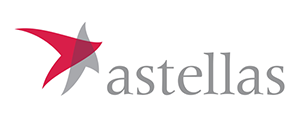PIPELINE
Cell Type Matters
VIEW OUR PROGRAMS
CAR-T
CAR-T therapy is a form of anti-cancer therapy in which T cells are genetically modified to attack tumors, an approach that has revolutionized how cancer is treated. Currently, all commercially available CAR-T therapies are autologous, where the T cells are derived from each patient. Poseida believes that the future of CAR-T and our ability to offer new treatment options lies in allogeneic approaches, where the T cells are derived from healthy donors.
Our clinical and preclinical candidates are designed as off-the-shelf treatments for cancer. We modify healthy donor derived T cells using Cas-CLOVER gene editing to disrupt expression of T cell receptor beta and human leukocyte antigens (HLA). Specifically, T cell receptor beta gene deletion eliminates or reduces unwanted immune reactions, such as graft-versus-host-disease (GvHD). Partial beta-2 microglobulin knock out improves persistence by eliminating CAR-T rejection by the patient’s immune system via mismatched HLA proteins. The large cargo capacity of our transposon-based DNA delivery system allows us to develop allogeneic CAR-Ts able to target multiple antigens for greater tumor recognition capacity.
INDICATIONS
PRECLINICAL
IND-ENABLING
PHASE 1
PHASE 2
Heme Malignancies and Autoimmune Diseases
PHASE 1
This allogeneic CAR-T candidate targeting B cell maturation antigen, or BCMA, is in development to treat relapsed/refractory multiple myeloma. This allogeneic program offers an improved VH-based binder which targets BCMA. This program has shown early evidence of encouraging safety and efficacy.
PHASE 1
This allogeneic dual CAR-T candidate targets both CD19 and CD20 antigens to treat B-cell malignancies. Dual targets address the limitations of single antigen loss and tumor variability.
IND-ENABLING
This fully allogeneic CAR-T product candidate expresses two full-length CARs targeting BCMA and CD19, each with an optimized intracellular domain (ICD) for enhanced potency, to treat relapsed/refractory multiple myeloma and autoimmune diseases.
IND-ENABLING
This allogeneic CAR-T candidate targets CD70 for the treatment of acute myeloid leukemia.
PRECLINICAL
Targets not yet disclosed.
Solid Tumor*
PRECLINICAL
This allogeneic CAR-T candidate targets prostate-specific membrane antigen, or PSMA, to treat prostate cancer. This allogeneic program offers improved VH-based binding technology targeting PSMA, which can potentially enhance anti-tumor efficacy.

PRECLINICAL
Targets not yet disclosed.
*Solid tumor targets identified in conjunction with the research collaboration and license agreement with Astellas yet to be disclosed
Genetic Medicines
Our system of proprietary, non-viral tools including transposon-based DNA delivery, Cas-CLOVER™ site-specific gene editing, and lipid nanoparticle delivery technology can be used individually or together – with the capacity to treat rare genetic diseases as well as address much more prevalent diseases.
INDICATION
PRECLINICAL
IND-ENABLING
PHASE 1
PHASE 2
Liver Directed
PRECLINICAL
This is an investigational liver-directed non-viral gene editing approach designed to enable high fidelity editing at the pre-kallikrein gene, or KLKB1, for targeted correction of hereditary angioedema, or HAE. It utilizes the Cas-CLOVER nuclease, which is engineered for high specificity, to achieve site-specific gene editing. HAE is a rare, inherited disorder that results in the swelling of the limbs, intestinal tract, and airways, which can be both debilitating and life-threatening. Preclinical data demonstrate therapeutically relevant reduction of pre-kallikrein levels in mouse and non-human primate models.
PRECLINICAL
This is an investigational liver-directed gene insertion program combining our transposon-based DNA delivery system with our non-viral nanoparticle technology for the in vivo treatment of Hemophilia A. Hemophilia A is a hereditary disorder caused by a deficiency in Factor VIII, or FVIII, production resulting in excessive bleeding occurring either spontaneously or due to trauma. Our preclinical data demonstrate the potential to correct FVIII deficiency to near-normal levels in both juvenile and adult mouse models using our fully non-viral, whole gene insertion system.
*Solid tumor targets identified in conjunction with the research collaboration and license agreement with Astellas yet to be disclosed